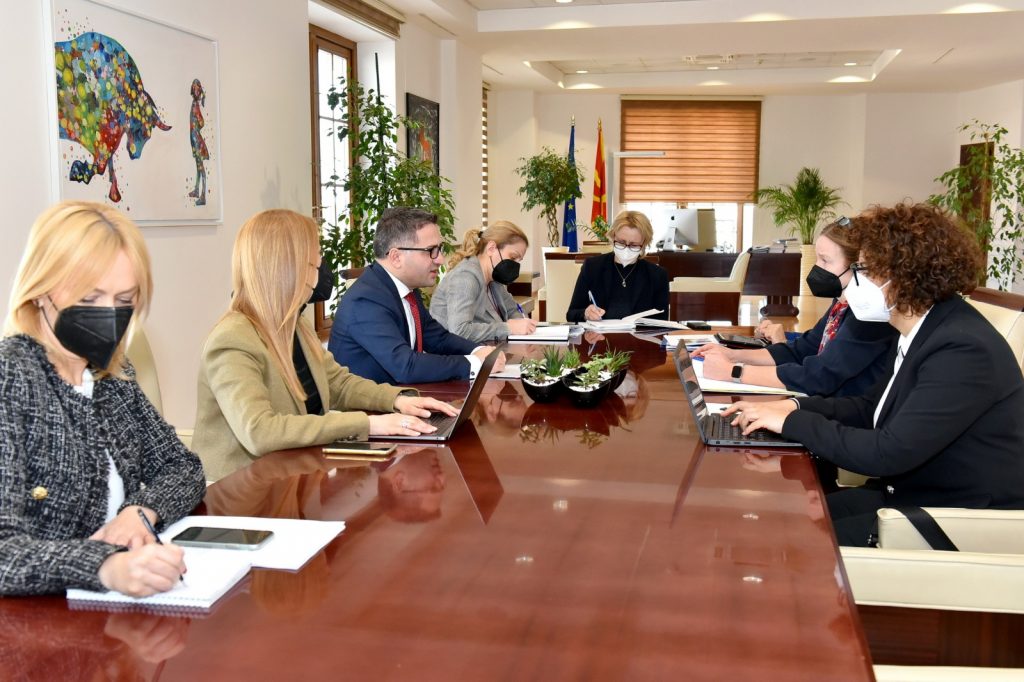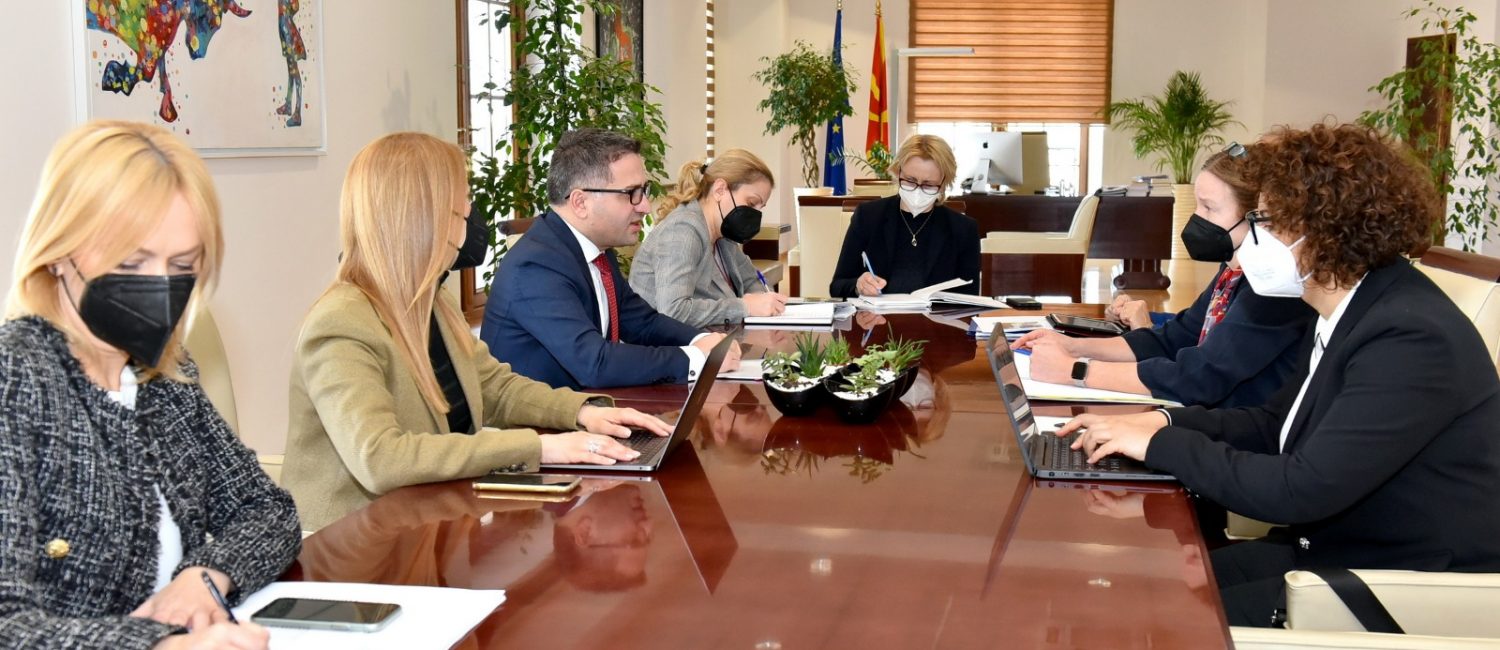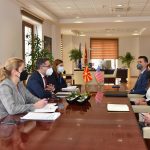9th March 2022, Skopje – Republic of North Macedonia is extended substantial support from the World Bank for implementation of key reforms. More than 60 projects totaling US$ 2.8 billion have been implemented so far, and they are actively working on nine projects in the total amount of US$ 480.8 million, focusing on energy, digitalization, infrastructure projects, projects in the area of education, etc. Support extended from this international institution in the field of managing the health and the economic crisis induced by COVID-19 is also substantial. Pace of project implementation and possibility to accelerate it were discussed at today’s meeting between the Minister of Finance, Fatmir Besimi, the Country Director for the Western Balkans Region of the World Bank, Linda Van Gelder, and World Bank Country Manager for North Macedonia Mr. Massimiliano Paolucci.

Cooperation with this international financial institution is based on the Country Partnership Framework, focusing on energy efficiency, digitalization, improvement of road and rail infrastructure, as well as municipal services, education projects, social services, etc.
Nine projects are being implemented with WB support at the moment: introduction of IFMIS (Integrated Financial management Information System) and ITIS (Integrated Tax Information System), Agriculture Modernization Project, Primary Education Improvement Project, Social Insurance Administration Project, Local Roads Connectivity Project, Western Balkans Trade and Transport facilitation Project, Social Services Improvement project, Road Upgrading and Development Project – Rankovce – Kriva Palanka section, Municipal Service Improvement Project, and Emergency COVID-19 Response Project.
Need to undertake activities to accelerate the pace of project implementation was highlighted, with both parties expressing readiness therefore.
In the light of the current energy crisis and increased prices of energy sources, especially following the developments in Ukraine, attention was drawn to the measures undertaken to manage the energy crisis, emphasizing the importance of the Public Sector Energy Efficiency Project, amounting to EUR 25 million, the aim of which is reduction of energy consumption in the public sector through energy efficient investments in the municipalities.
During the meeting, emphasis was also placed on the measures undertaken by the Government to the end of protecting the living standard and preventing any large increase of the prices of energy sources, as well as the pension reforms, coupled with the new Pension Calculation Methodology which is to be applied starting October this year, providing for a systemic and sustainable solution for pension increase and payment.
The Minister pointed out that the Government, as during the pandemic, when sets of supporting measures were designed and implemented, is proactive as regards the energy crisis, closely monitoring the developments and working on designing measures.
Effects from the war in Ukraine spill over into other countries. World Bank and IMF assess the economic and the financial impact of the conflict and the wave of refugees in the other regions. World Bank is aware of the region’s needs arising for the development in Ukraine and is willing to provide assistance in the form of fresh financing, as well as restructuring the existing activities.
















